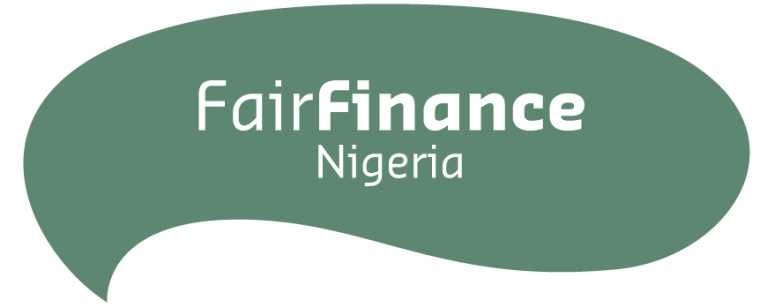Fair Finance Nigeria
Communique: Stakeholder Consultative Workshop with Oil and Gas Host Communities on Curbing Illicit Financial Flows in Nigeria.
Background
Fair Finance International (FFI) is an international civil society network of over 100 organizations in 24 countries, initiated by Oxfam Novib in 2009 and financed by the Swedish government Agency Sida since 2014, aiming to strengthen banks and financial institution's commitment to social, environmental, gender, and human rights standards through rigorous policy assessments and case studies, promoting sustainable lending and investments.
The Fair Finance Nigeria (FFNG) coalition, coordinated by the Civil Society Legislative Advocacy Centre (CISLAC) and supported by Oxfam in Nigeria and Fair Finance International held a 2-day consultative workshop Host Community Development Trust for community buy-in on the Fair Finance International Nigeria on Curbing the Illicit Financial Flow in Nigeria.
The workshop had the following objectives:
- Increasing awareness of host communities and stakeholders on the human rights obligations of companies.
- Enhancing financial inclusion for community groups, promoting sustainable investments.
- Providing financial literacy and resources to help communities make informed financial decisions.
Participants included representatives of Host Community Development Trusts (HCDTs), the Economic and Financial Crimes Commission (EFCC), The Nigeria Security and Civil Defence Corps (NSCDC), the Nigeria Police Force, the Akwa Ibom State Ministries of Justice, Information, Environment/Mineral Resources, the Executive Chairman and Vice Chairman of Ibeno LGA, CSOs and the media. The workshop brought together 39 participants from across the state.
Observations
Participants observed the following:
- Illicit Financial Flows (IFFs) denies government the needed revenue to finance public budgets and deprives communities of critical social goods and services, such as health, education, public security, and agricultural inputs.
- Environment, social, and governance (ESG) standards are veritable principles for ensuring that financial institutions operate transparently and ethically, benefiting both the economy and oil and gas host communities
- Inadequate awareness of relevant policies and laws among community members constrains the capacity of communities to hold regulatory agencies, corporations, and financial institutions accountable on their human rights obligations
- Inadequate information about institutional arrangements that help facilitate redress. For instance, which government agencies should community members report to when there is an oil spill?
- Poor collaboration among government agencies on response to gas flare, crude oil spillage and project abandonment, limit community development and advancement of climate justice.
- Poor funding of the National Oil Spill Detection and Response Agency (NOSDRA) leading to undue reliance of the agency on the perpetrators for response to incidents.
- The absence of legislation to protect whistleblowers impedes operationalization of the whistleblower policy against exposing perpetrators of base erosion and illicit financial flow.
Opportunities
However, we also identified opportunities for improvement including
- Capacity building and training for stakeholders
- Strengthening community feedback systems and mechanisms
- Strengthening financial management and regulatory systems
- Effective legislation and political will to implement laws.
- Continuous engagement of civil society organisations for advocacy and monitoring
- Technical support for host communities to help draw further attention to their challenges at the global level.
Recommendation
Participants recommended as follows:
- Capacity Building of the relevant stakeholders e.g., financial institutions, security agencies and host community members.
- Adequate funding and proper equipping of the security and regulatory agencies.
- Effective legislation and strong political will to implement the laws and support institutions in fighting IFFs –put in place an integrity management system.
- Leveraging modern technology and strengthening financial management systems to curb IFF.
- Adequate information dissemination on illicit financial flows using mass media and other relevant communication channels
- Ensuring the protection of whistle-blowers through adequate implementation of requisite laws and policies.
Conclusion
The undersigned commit to utilizing this communique as a media advocacy tool, disseminating information through various channels, engaging duty bearers and engaging in community-level conversations to further cascade the discussion to bring about relevant changes in policy, practice and behaviour.
Oxfam in Nigeria
Civil Society Legislative Advocacy Centre (CISLAC)
BudgIT Foundation
Connected Development (CODE)
STEP/AKGCODA
Policy Alert
Ibeno Youth Advocacy Network (IYAN)
Chairman, Ibeno LGA
Ibeno Host Community Development Trust
Clement Isong Foundation
Ijaw Youth Council
Obolo Youth Coalition
Ukpenekang Youth Association
Ibeno Community Leader
Eket Community Leader
Eastern Obolo Community Leader
Esit Eket Community Leader
Inspiration FM
Comfort FM
Pioneer Newspaper
The Mail News
